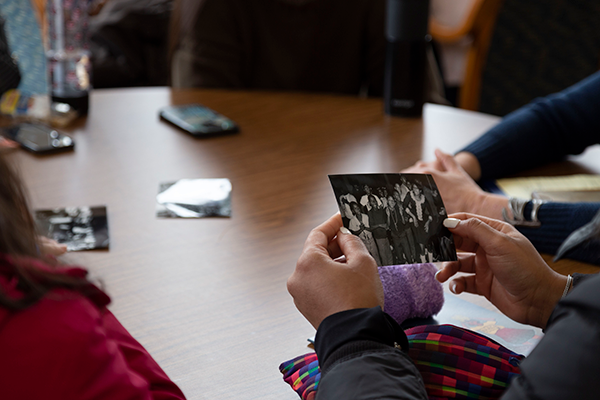Campus comes together to remember Milwaukee’s forgotten civil rights history
Over 100 members of the Mount Mary community joined together for a thought-provoking conversation about an often overlooked moment in Milwaukee’s history: the city’s 200 nights of open housing marches.
In 1967, Milwaukee’s NAACP Youth Council led 200 nights of marches and direct action to demand fair and open housing for black residents. This awe-inspiring movement led to the passing of the fair housing policies locally, and would be instrumental in the passing of the federal fair housing policy of the late 1960s.
The discussion was facilitated by Dr. Robert S. Smith, Director of the Center for Urban Research, Teaching and Outreach at Marquette University, and Adam Carr, editor for community engagement at the Milwaukee Neighborhood News Service.
Alongside images depicting notable figures from the marches, such as Vel Phillips, the first African American and woman elected to the city of Milwaukee Common Council, and civil rights activist Father Groppi, often stand another group of powerful change agents: the city’s youth.
Common Council, and civil rights activist Father Groppi, often stand another group of powerful change agents: the city’s youth.
The youth’s bravery in the face of violent opposition serve as a reminder to the value and impact of social justice and advocating for change, no matter one’s age. It is a testament to the Mount Mary belief that the responsibility for creating change in a divided world rests in the hands of individuals.
This program was supported by a grant to Mount Mary University from Howard Hughes Medical Institute through the Science Education Program. The seminar was the first in an ongoing series of events in relation to the campus-wide initiative to discover and reduce barriers to education.
“We can't progress toward our goal of being a truly inclusive community without an understanding of Milwaukee's history and the United States history around race and how that shapes our current culture and paradigms,” said Lynn Diener, Ph.D., Chair of the Sciences Department and Program Director of the grant. “We grow as a community in our knowledge, compassion and energy for change.”